Napsali o nás
Fate of former Schindler’s list factory is met with Czech ambivalence
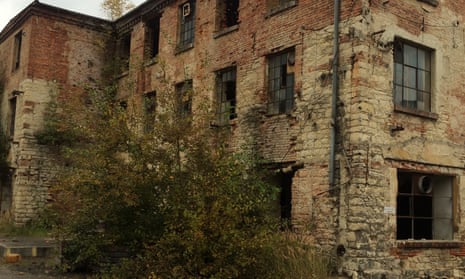
Plans to turn derelict site into museum faces obstacles, including funding costs and mixed feelings about Nazi industrialist
The desolate site’s shabby surroundings give no hint that it was host to one of the most famous acts of human salvation in modern times.
Empty drink bottles and assorted detritus are scattered on the floor of a once grand-looking Habsburg-era house; birds nest amid the wild vegetation sprouting from the leaking roof of a former administrative block; a cold wind blows through the empty window frames of an abandoned factory building that has been stripped of most of its fittings.
The scene of dereliction in the tiny Bohemian village of Brněnec (formerly Brünnlitz), 140 miles north-east of Prague, is all that remains of the industrial site used by Oskar Schindler to shelter and save 1,200 Jews on his storied list in the final months of the second world war.
The Nazi industrialist transported his Jewish workers here from his factories in Krakow in Poland in late 1944 on the pretext that they were skilled munitions specialists needed to manufacture tank shells for the German war effort. In reality, they were moved to prevent them from perishing in the Holocaust as the Nazis intensified the extermination of Jews while German forces retreated in the face of the advancing Red Army.
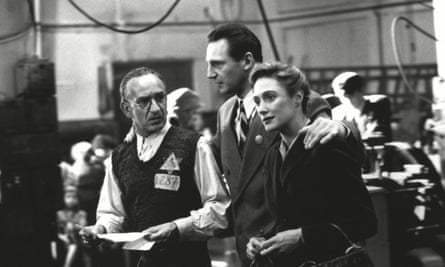
Now the dilapidated former textile plant – vividly portrayed in Steven Spielberg’s 1994 film, Schindler’s List, and in Thomas Keneally’s Booker prize-winning novel, Schindler’s Ark – is at the centre of an ambitious plan to convert it into a museum memorialising the industrialist and those he saved.
After a protracted legal fight, ownership of the site – which produced textiles for Ikea and Škoda car seat covers before closing in 2009 – recently passed to the newly established Shoah and Oskar Schindler Memorial Endowment Memorial Foundation.
Jaroslav Novak, a local writer, is head of the foundation, which was formed to push the museum plan. He is seeking funding from the European Union as well as international Jewish groups for a project he believes is vital to prevent the site from vanishing without trace.
“This is the only Nazi concentration camp in the Czech Republic that is still standing in its original building,” says Novak, 49, a native of nearby Svitavy, the same town where Schindler was born in 1908, when it was part of Austria under the Habsburg empire and known by its German name of Zwittau.
“You cannot allow it and the whole history of Schindler to disappear. I have been fighting for this for 20 years. But people are just not interested in it,” he adds.
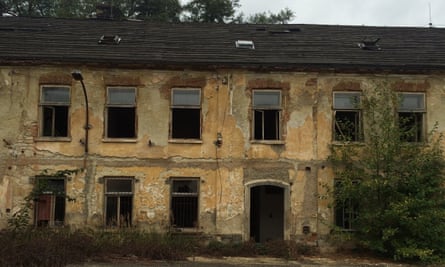
The neglected state of the former Schindler factory and its fate echoes that of his one-time enamel plant in Krakow, which has been turned into a museum and tourist attraction.
One reason is finance. Conversion costs for the Brněnec site have been estimated at 140m Czech krone (£4.5m), with emergency funds needed for urgent roof repairs before winter arrives.
Novak, the author of a book on the history of beer, has secured one funding pledge from the local regional authority, and says he is close to persuading the Czech culture ministry to slap a protection notice on the former factory, which was originally established in the 1840s by a Jewish family who retained it until being forced to flee by the Nazis.

The plan also faces another obstacle: the mixed feelings of many Czechs about Schindler. The industrialist was a Czechoslovakian citizen from the then mainly German-speaking Sudetenland region who spied for the Abwehr, the Nazi foreign intelligence service, before the territory was formally annexed by Hitler under the 1938 Munich agreement, and who later joined the Nazi party.
Few Czechs had heard of his later wartime exploits before they were depicted by Hollywood. Even today, many recall Schindler, who died in 1974 and is honoured along with his wife, Emilie, at Jerusalem’s Yad Vashem Holocaust Museum, by referring to his prewar local reputation as a “gauner” (German for crook) who was notorious for heavy drinking, womanising and gambling debts.
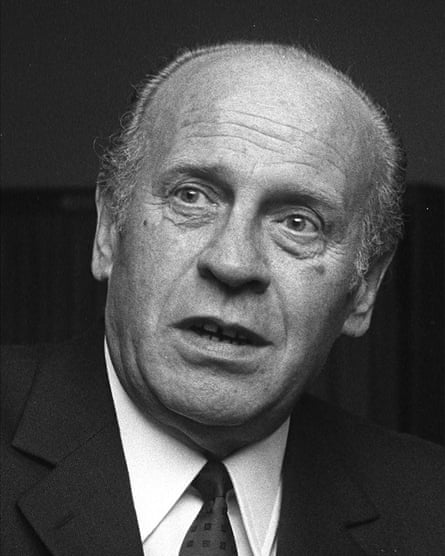
The present owner of the house where he was born has refused to allow it to be adorned with a plaque. A small memorial standing in a park across the street was daubed with a swastika days after its unveiling in 1994.
Jitka Gruntova, a former Communist MP and author of a deeply critical book about Schindler, brands the industrialist “a traitor and a war criminal” whose reputation as a saviour is based on “a made-up legend”.
She says: “I have found no evidence of Schindler saving prisoners. I’ve come to the conclusion he was only saving himself – mostly by writing a postwar synopsis of his alleged activities. I don’t doubt there are certain witness statements in his favour but these are, as far as I can tell, made by people who belonged to the inner circle around him.”
In Svitavy’s small municipal museum, where Schindler’s memory is marked by a single-room exhibition, the resident historian Radoslav Fikejz attributes the scepticism to the former Czechoslovakia’s legacy of communism and its expulsion of most of the country’s 3 million German speakers after the war.
“It’s a very big problem because we still have 40 years of communism in our mentality,” he says. “It’s also a problem that Schindler was a Sudeten-German and people are afraid of one question, which is: what happens when the Germans come back? But this is unrealistic.
“Yes Schindler was a Nazi, a war criminal and a spy. But I have met 150 Jews who were on his list and were in the Brněnec camp and they say that what’s important is that they are alive.”
Tomas Kraus, director of the federation of Jewish communities in the Czech Republic, welcomes the museum initiative. “It’s a very complex story,” he says. “Schindler was a perpetrator who later became a saviour and a hero. But he was not alone in that. There were others like him – he was only the most famous.”
But Tom Gross, a British commentator on Czech affairs whose great-grandparents died in Treblinka death camp, says the museum plan should not obscure the lack of a state-funded Holocaust memorial, besides the existing shrine at the former Theresienstadt concentration camp 40 miles north of Prague.
“Prague still has no central Holocaust memorial when it was one of the most Jewish cities in the world and the vast majority of its Jews were murdered,” he says. “The small local Jewish community is reticent about campaigning for one, perhaps for fear of provoking an antisemitic backlash.”
… as you’re joining us today from the Czech Republic, we have a small favour to ask. Tens of millions have placed their trust in the Guardian’s fearless journalism since we started publishing 200 years ago, turning to us in moments of crisis, uncertainty, solidarity and hope. More than 1.5 million supporters, from 180 countries, now power us financially – keeping us open to all, and fiercely independent. Will you make a difference and support us too?
Unlike many others, the Guardian has no shareholders and no billionaire owner. Just the determination and passion to deliver high-impact global reporting, always free from commercial or political influence. Reporting like this is vital for democracy, for fairness and to demand better from the powerful.
And we provide all this for free, for everyone to read. We do this because we believe in information equality. Greater numbers of people can keep track of the events shaping our world, understand their impact on people and communities, and become inspired to take meaningful action. Millions can benefit from open access to quality, truthful news, regardless of their ability to pay for it.
Whether you give a little or a lot, your funding will power our reporting for the years to come. If you can, please support us on a monthly basis from just €2. It takes less than a minute to set up, and you can rest assured that you’re making a big impact every single month in support of open, independent journalism. Thank you.
Zdroj: https://www.theguardian.com/world/2016/oct/11/former-schindlers-list-factory-plans-czech-museum-nazi-industralist
Comments are closed




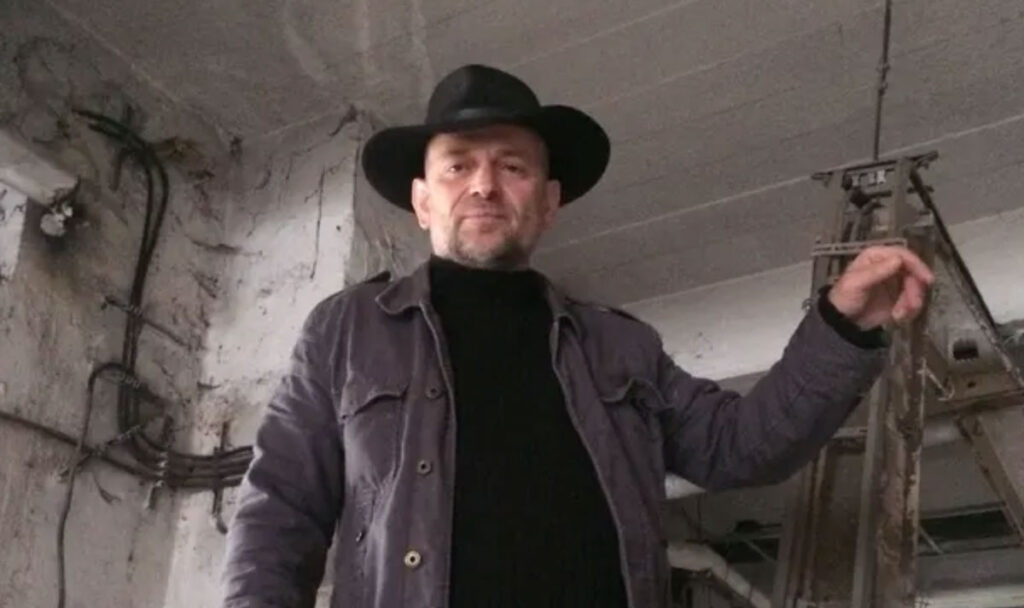






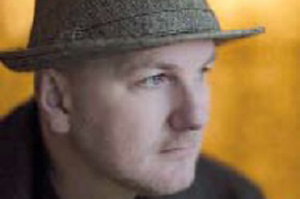
Recent Comments